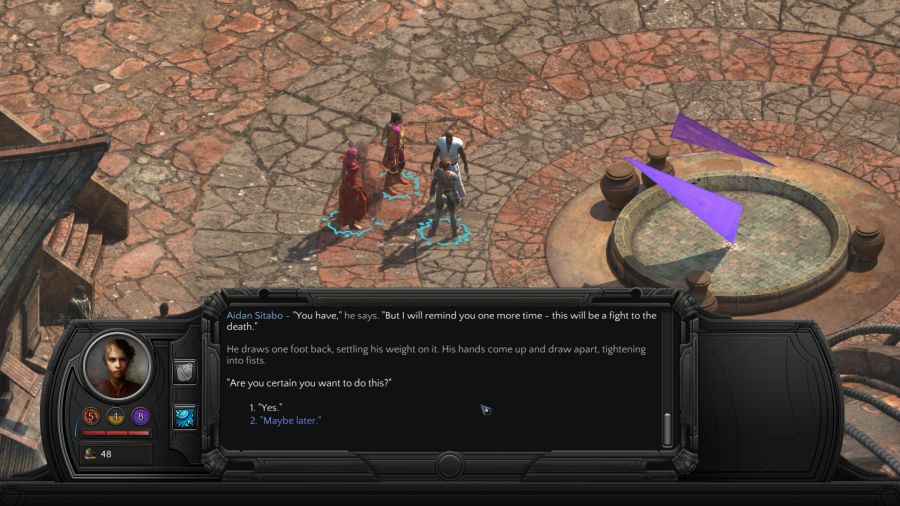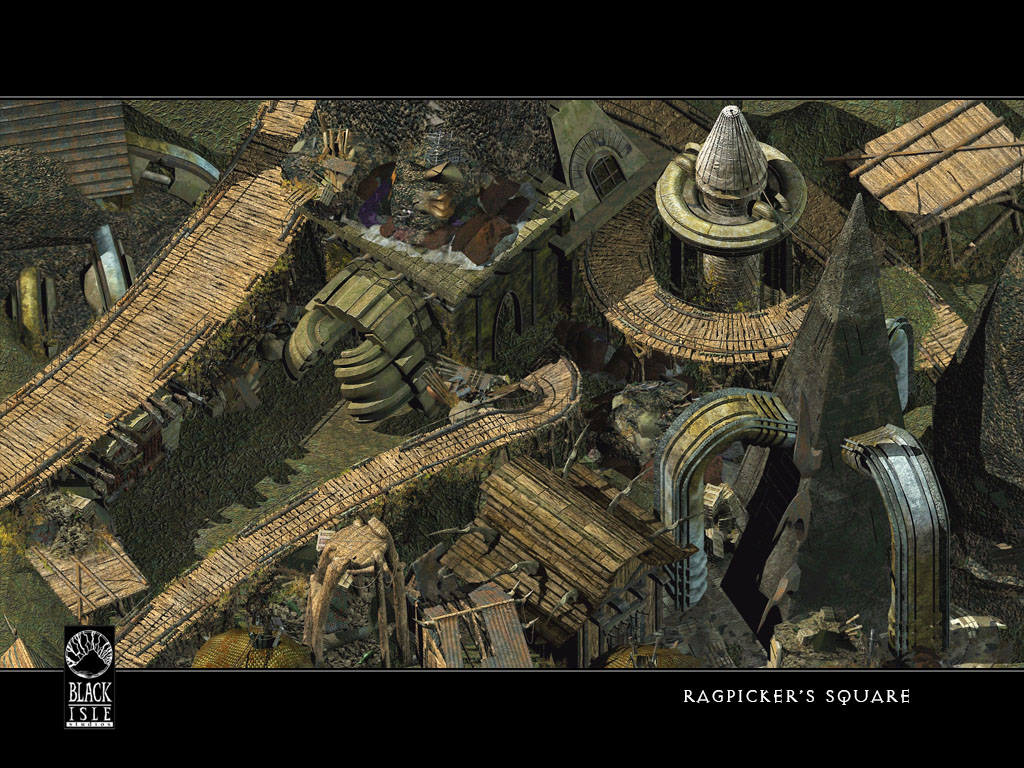
Masters Defense - which increases your defense in combat.Brandishes a Silver Tongue - increases chances your ability to persuade people either through deception or intimidation.Lastly, a short ways into the game you'll select a Focus. For all of these selections, the game will give you a starting point based on your answers to some questions, but you'll be able to deliberately select what you want from a menu before finalizing your decision. Next you'll pick a Descriptor: this is a list of prefixes to your class (ie, "Clever") that will grant you a small passive buff for one skill or combat ability. Exhausting any of these pools will greatly limit your options in conversation and the options you have in battle, until the next time you're able to rest.

These are both treated like stats but also as literal pools: a resource that can be exhausted and must be replenished by using consumable items or resting. The three main stat pools are Might, Speed, and Intellect, and these serve as the basis for skill checks both inside and outside of combat. They can be passive inherent abilities or active ones to use in combat. You'll get a chance to select from a pool of talents specific to your class. They will specialize in the Intellect stat pool and often use persuasion to avoid conflicts. They specialize in several abilities and would generally benefit from an even spread among the stat pools.

In this way, the newer castoffs have more perfect bodies, higher level abilities, but are the youngest and least experienced of the family. The manner in which he does this is never explicitly explained, but fits with the core of the game's theme that the technology has advanced to a point where it is indistinguishable from magic.Īs the Changing God moves from body to body, improving the process each time, he leaves his castoffs with imposter memories but also with unique consciousnesses.

In this world (called the "Ninth World"), you play as a castoff character of a person known as the Changing God: a mysterious nigh-immortal character who has found a way to cheat death by transplanting his soul and memories from body to body. Seeing how human life and human like ancestors in reality have at most only been around for ( only) 6 million years, it's not surprising that the world in Numenera is as divorced from reality as any other fantasy setting out there. Torment: Tides of Numenera (for efficiency, Numenera), takes place a billion years in the future of the current world. The more I read, the more I began to realize how different and weird Torment was shaping up to be. All of a sudden I found myself eagerly anticipating the spiritual successor to a cult classic I had never even played. Fast forward a few years and the industry revitalization of the genre along with my newfound similar experiences with titles such as Divinity: Original Sin, Tyranny, and Pillars of Eternity had put me and Torment: Tides of Numenera on a collision course. I hadn't played its godfather Planescape: Torment and I wasn't well versed in isometric computer-style rpgs at all. When Torment: Tides of Numenera first hit Kickstarter in early 2013, it set records for being the highest funded video game on the crowdfunding service and got plenty of attention, but it didn't even register on my personal radar.


 0 kommentar(er)
0 kommentar(er)
